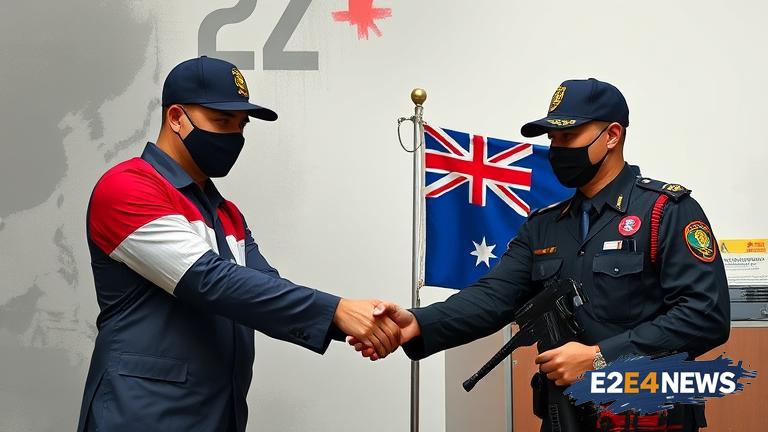Indonesia and Australia have reaffirmed their strong ties in responding to terrorism, with a focus on enhancing cooperation and intelligence sharing. The two countries have a long history of collaboration on counter-terrorism efforts, and this renewed commitment is expected to further strengthen their partnership. In recent years, both Indonesia and Australia have faced significant threats from terrorist organizations, and this cooperation is crucial in preventing and responding to such threats. The Indonesian government has been actively working to prevent the spread of extremist ideologies, and Australia has been providing support and assistance in this effort. The two countries have also been sharing intelligence and best practices in counter-terrorism, which has helped to disrupt and dismantle terrorist networks. This cooperation is not only beneficial for the two countries but also for the region as a whole, as it helps to prevent the spread of terrorism and promote stability and security. The Indonesian and Australian governments have also been working together to address the root causes of terrorism, such as poverty and social inequality. By addressing these underlying issues, the two countries hope to prevent the radicalization of individuals and reduce the appeal of extremist ideologies. The cooperation between Indonesia and Australia is also expected to have a positive impact on the regional security architecture, as it promotes a collaborative approach to counter-terrorism. The two countries have also been working with other regional partners to enhance cooperation and coordination on counter-terrorism efforts. This includes sharing intelligence and best practices, as well as providing training and capacity-building programs for law enforcement and security agencies. The Indonesian and Australian governments have also been engaging with civil society organizations and community groups to promote counter-narratives to extremist ideologies. This approach recognizes that terrorism is not just a security issue, but also a social and economic one, and that a comprehensive approach is needed to prevent and respond to it. The cooperation between Indonesia and Australia is a model for other countries in the region, and demonstrates the importance of collaboration and cooperation in preventing and responding to terrorism. The two countries have also been working together to enhance their cybersecurity capabilities, as terrorist organizations are increasingly using the internet and social media to spread their ideologies and recruit new members. This cooperation is critical in preventing the spread of terrorist propaganda and disrupting the online activities of terrorist organizations. The Indonesian and Australian governments have also been providing support and assistance to victims of terrorism, and working to promote a culture of tolerance and respect for human rights. This approach recognizes that terrorism is a violation of human rights, and that a comprehensive approach is needed to prevent and respond to it. The cooperation between Indonesia and Australia is a testament to the strong relationship between the two countries, and demonstrates their commitment to promoting peace, stability, and security in the region. The two countries will continue to work together to enhance their counter-terrorism cooperation, and to address the evolving threats posed by terrorist organizations. This cooperation is expected to have a positive impact on the region, and to promote a safer and more secure environment for all. The Indonesian and Australian governments are committed to continuing their cooperation on counter-terrorism, and to working together to prevent and respond to the threats posed by terrorist organizations. This cooperation is a key component of their bilateral relationship, and demonstrates their commitment to promoting peace, stability, and security in the region. The two countries will continue to work together to enhance their cooperation on counter-terrorism, and to address the evolving threats posed by terrorist organizations.
